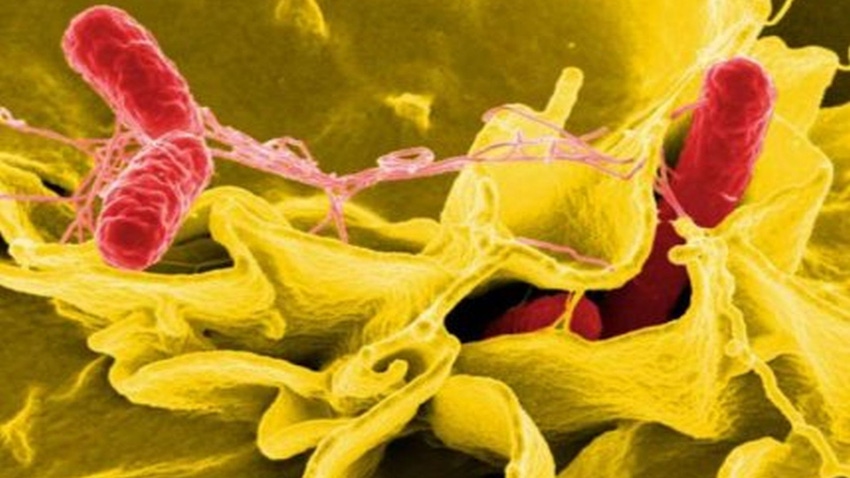Petition filed to make salmonella an adulterant
Salmonella may not be the killer that E. coli O157:H7 is, but it is more than just a tummy ache.
January 24, 2020

OK, not all salmonella, just certain strains known to be especially virulent when infecting us humans.
To start the New Year off with a bang, at 2:10 PM January 2, 2020, I received a copy of a “Petition for an Interpretive Rule Declaring ‘Outbreak’ Serotypes of Salmonella enterica subspecies enterica to be Adulterants Within the Meanings of 21 U.S.C. & 601(m)(1) and 21 U.S.C. & 453(g)(1).”
The Citizen Petition was submitted by MarlerClark LLP, PS, on behalf of Rick Shille, Steven Romes, The Porter Family, Food & Water Watch, Consumer Federation of America, and Consumer Reports.
The petition goes into some detail about the first three names above and their long-term illnesses associated with contraction salmonellosis.
It also describes MarlerClark as “the nation’s foremost law firm representing victims of foodborne illnesses,” a claim that few would dispute.
It includes a note that Food & Water Watch has filed a petition to ban fracking.
Notably missing from the list is the Centers for Science in the Public’s Interest (CSPI) and STOP Foodborne Illnesses.
This is not the first petition to name salmonella as an adulterant in meat and poultry products. CSPI filed a petition with the Food Safety & Inspection Service (FSIS) in 2011 asking for certain antibiotic resistant strains to be so classified.
It was denied by FSIS in 2014.
And this is not the first petition by MarlerClark asking for expansion of the list of adulterants in meat and poultry.
In October of 2009 MarlerClark petitioned FSIS to name six non-O157:H7 STECs (Shiga Toxin producing E. coli) as adulterants.
The beef industry cried it would kill them.
But since the non-O157s were killing people, FSIS listened to MarlerClark and many others and moved forward and life goes on today with a few changes and a few more recalls.
The goal behind this petition is probably to give FSIS the legal standing to ask for recalls or prevent distribution when salmonella contaminated meat and poultry is found.
Current practice is only to ask for a recall when there is an outbreak and product can be traced back to a plant. That is reactive, not preventive, governmental action.
The petition also points out that when E coli O157:H7 was declared an adulterant in non-intact beef by then FSIS Administrator Mike Taylor, industry was forced to change slaughter house practices and the incidence of infections dropped significantly.
At that time the beef industry also cried foul and sued for relief but lost.
Then they rolled up their sleeves and declared food safety information to be non-proprietary.
I think the hope here is that a declaration would force industry to adopt new science-based practices to reduce salmonella contamination.
The petition for salmonella is a good read. If you know nothing about the issue, 64 pages later you will be well informed, if not just a little biased.
But there are some major omissions of facts and differences between E. coli and salmonella.
First and foremost is the lethality of the two.
Last year the CDC estimated there were 73,000 illnesses related to E. coli, with an associated 60 deaths (0.1%).
In comparison, CDC estimates there were 1.35 million cases of salmonellosis with 400 deaths (0.03%).
That is not to say that 400 is an insignificant number, nor are the long-term health effects.
Salmonella used to be associated with poultry and E. coli with ground beef.
But we know better now, as witnessed by the last three years of recurring E. coli foodborne outbreaks associated with Romaine lettuce and salmonella from raw milk, petting zoos, onions, beef, etc.
So to name it an adulterant in poultry and let the green, leafy veggies off the hook just does not seem fair.
Another point to consider:
From 2006-2008, we dropped the percentage of chicken carcasses contaminated with salmonella from around 16% to around 7% with the New Poultry Salmonella Initiative.
But the rate of human illnesses from salmonella did not drop even one percent.
Someone needs to answer why there was no drop before I can support a zero tolerance for salmonella.
Plus we have prior legal decisions (APHA vs Espy and Supreme Beef vs USDA) that complicate the issue and, in theory, somewhat tie FSIS’s hands from being more proactive and preventive than they currently are.
And before you consider writing off this petition as something an ambulance chasing lawyer might be behind, I would submit to you that MarlerClark may have done more since 1993 to promote food safety in this country by the threat of huge settlements than any governmental agency has done to protect us from foodborne illnesses.
Salmonella may not be the killer that E. coli O157:H7 is, but it is MORE than just a tummy ache.
About the Author(s)
You May Also Like



